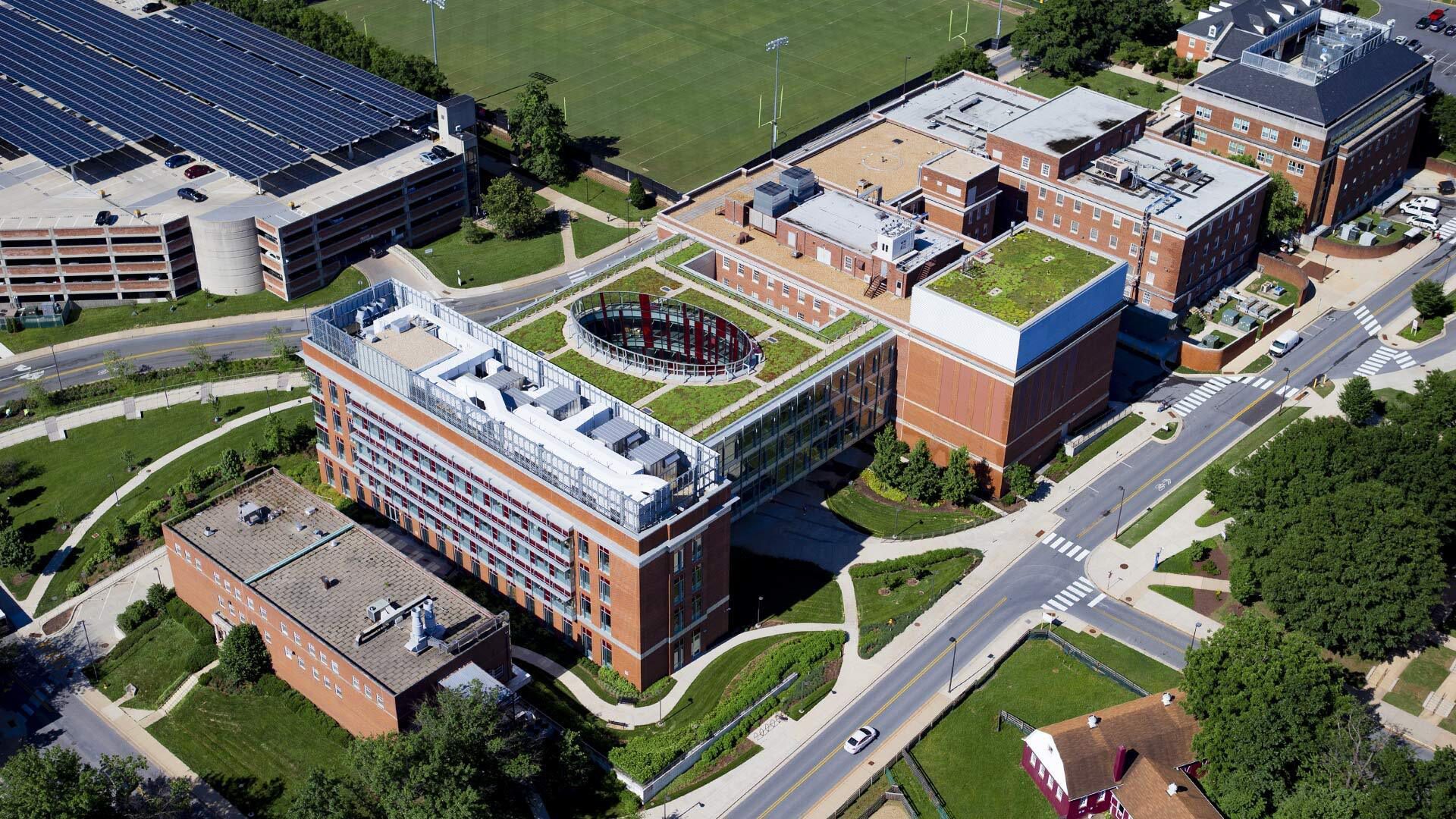- December 13, 2019
- By Maryland Today Staff
States, cities, businesses, universities and other institutions are successfully driving down greenhouse gas emissions at a time when the U.S. federal government has stepped away from meeting the goals of the 2016 Paris Agreement, according to a new comprehensive report led by School of Public Policy Center for Global Sustainability.
The report was released Monday at a United Nations Climate Change Conference in Madrid, Spain, by the America’s Pledge initiative on climate. Entitled “Accelerating America’s Pledge: Going All-In to Build A Prosperous, Low Carbon Economy for the United States,” lays out two possible scenarios for enhanced climate action, building on the already significant momentum from subnational actors—cities, states, businesses, and more. The first provides an updated assessment of the current trajectory of climate action from these actors and a vision for where the U.S. economy could be in 2030 with enhanced ambition. The second puts forth an “All In” climate strategy, including a federal re-engagement strategy, build upon the foundation that non-federal actors have enacted.
“As the international community seeks to raise global ambition to tackle climate change over the coming year, this report identifies the remarkable scale of action being driven by states, cities, businesses, and others across the United States,” said Nate Hultman, lead author of the report and director of the Center for Global Sustainability (CGS) at the University of Maryland. “The report’s results are encouraging, showing a large impact and a pathway to drive ambitious emissions reductions in the United States. The rapidly growing coalition acting on climate in the United States is globally significant (and) is already delivering significant emissions reductions.”
Among the report’s conclusions:
- The cities, states, businesses and others addressing climate change represent almost 70% of the U.S. gross domestic product, 65% of the population and over half of U.S. carbon emissions. These are equivalent to the world’s second-largest economy—larger even than China's and only behind the full of the U.S.
- Bottom-up action from these coalitions of cities, states, businesses, and more, has the potential to reduce U.S. emissions 37% below 2005 levels by 2030.
- Adding federal government action from Congress and the executive branch would put the U.S. on track to reduce emissions 49% below 2005 levels by 2030, in line with the goals of the Paris Agreement, and lay the foundation for a net-zero emissions economy by 2050.
- Even the commitments already on the books from this growing coalition would drive emissions down 25% below 2005 levels by 2025.
In addition to Hultman, Center for Global Sustainability members Leon Clarke, Christina Bowman, Morgan Edwards, Ryna Cui and John O’Neil co-authored the report, along with partners from the Rocky Mountain Institute (RMI), World Resources Institute and CDP. CGS and RMI co-lead the overall America’s Pledge research and project team.
“Bottom-up action isn’t just happening in the U.S. It’s happening around the world,” said Clarke, CGS research director. “A key question is how we provide the knowledge and tools that these bottom actors need as they map out their steps forward. We hope the methodology in this report will serve as an important contribution to that discussion and not only in the U.S., but also for the bottom-up community around the world.”
Find the latest America’s Pledge report along with 2017 and 2018 reports, as well as executive summaries, technical appendixes and more at americaspledge.com.
Topics
ResearchUnits
School of Public Policy